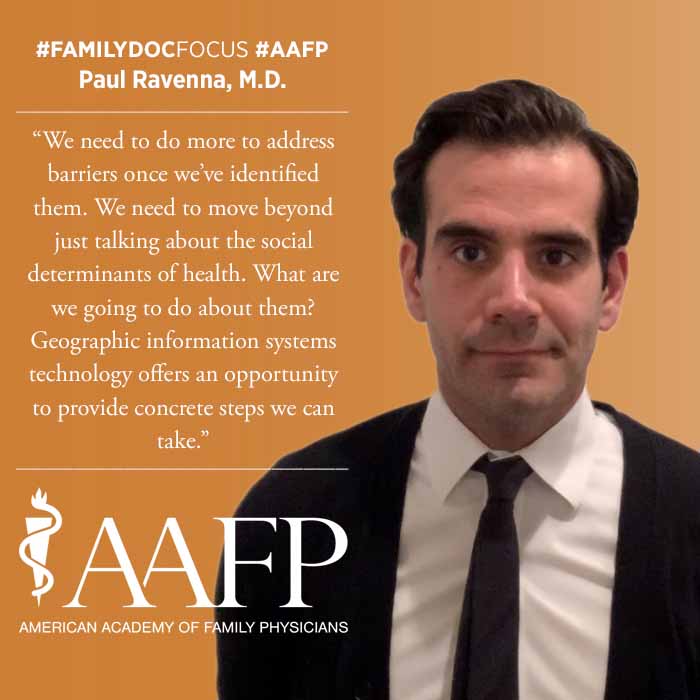Mapping a Path to Good Health
November 26, 2018 08:27 am David Mitchell – When Paul Ravenna, M.D., started his training at Rosalind Franklin University of Medicine and Science's Chicago Medical School, he pictured his future self as a "microspecialist who would be in residency and fellowships forever."
Then he volunteered at a free clinic, and his career path changed.
"You spend so much of your first two years buried in the library," he said. "I wanted to get out and do something clinically. The first day was eye-opening, and I pursued more volunteer opportunities."
Ravenna continued his training in a federally qualified health center at Northwestern University's Northwestern McGaw Family Medicine Residency at Humboldt Park. Now an associate program director of the Northwestern McGaw Family Medicine Residency at Lake Forest, Ravenna has helped start another free clinic at a local high school in North Chicago.
"As doctors, we're responsible to communities we serve," he said. "We should be champions for health and the underserved. There are things happening outside our exam rooms that affect health far more than anything that happens within our walls."
Ravenna was recently named to the AAFP's first class of health equity fellows, along with Michelle Quiogue, M.D., of Bakersfield, Calif., and Karen Isaacs, M.D., M.P.H., of Wilmington, N.C.
During his yearlong fellowship, Ravenna will look at how geographic information systems can help improve health care and how physicians can be trained to use those tools. For example, the AAFP's HealthLandscape Population Health Profiler(www.healthlandscape.org) can tell physicians more about the rates of chronic conditions or insurance coverage in a given area, while the Academy's Neighborhood Navigator can help link people to needed resources within the community.
"We need to do more to address barriers once we've identified them," he said. "We need to move beyond just talking about the social determinants of health. What are we going to do about them? Geographic information systems technology offers an opportunity to provide concrete steps we can take."
Ravenna hopes to take those steps with his residents and patients at the point of care.
"This is an opportunity to do two things I'm passionate about: addressing the social determinants of health and teaching," he said. "It's amazing to take these two important things and put them together."
